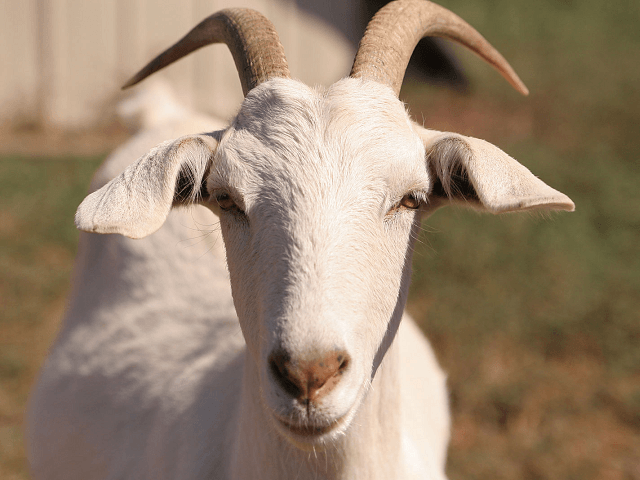Tanzanian President John Magufuli denounced imported coronavirus test kits as faulty after he said they returned positive results for samples taken from a goat and a pawpaw, a fruit similar to papaya, Reuters reported on Sunday.
The testing kits had “technical errors,” Magufuli said during an event in Chato in northwestern Tanzania on Sunday. The president added that the coronavirus testing kits had been imported from abroad but did not say from where.
Magufuli said he told Tanzanian security forces to check the quality of the imported kits. They randomly obtained several non-human samples, including from a sheep, a goat, and a papaya, but assigned them human names and ages.
According to the president, these samples were then submitted to a Tanzanian laboratory to test for the coronavirus. Laboratory technicians were not told that these were not human samples.
Samples from the papaya and the goat tested positive for coronavirus, Magufuli said.
He added that this meant it was likely that some people in Tanzania were falsely testing positive for coronavirus.
“There is something happening. I said before we should not accept that every aid is meant to be good for this nation,” the president said. According to the report, Magufuli said he wants the imported testing kits investigated.
In recent weeks, several countries around the world including the United States, Australia, Spain, Turkey, and the Netherlands have rejected coronavirus medical equipment imported from China as defective.
On April 21, Indian health authorities told states to stop using coronavirus testing kits imported from China after a scientific investigation concluded they were wildly inaccurate. This rejection of Chinese-made goods by India was a demonstration of “prejudice” according to the Chinese embassy in New Delhi last week.
“It is unfair and irresponsible for certain individuals to label Chinese products as ‘faulty’ and look at issues with pre-emptive prejudice,” Chinese embassy spokeswoman Ji Rong said in a statement.
Last month, the Chinese Communist Party (CCP) called on the world to “stop smearing Chinese [coronavirus] assistance” in an article published in the state-run newspaper Global Times.
“I think the quality issue reported by some media has been politicized. They can’t prove the reported testing kits have quality issues, because the use and transport [of the kits] may influence their stability and sensitivity,” an employee at Beijing Beier Bioengineering, a test kit provider, told the newspaper.
In Tanzania, Magufuli’s government has drawn criticism in recent weeks for failing to take the coronavirus pandemic seriously. In March, he said Tanzanians need prayer, not medical masks, to protect themselves from the coronavirus.
Tanzania has not taken extensive measures against the coronavirus pandemic yet, unlike most other African nations. Markets, public transportation, and shops remain open in the country, although schools and universities have been closed.
On April 29, a prominent Tanzanian lawyer was arrested for saying the coronavirus was “serious” and “a real threat” to the nation. News of the arrest came amid accusations from a Tanzanian opposition leader that Magufuli’s government was hiding the true number of coronavirus cases and deaths, both believed to be much higher than reported.
At press time on Monday, Tanzania had officially reported 480 infections and 16 deaths from the Chinese coronavirus.

COMMENTS
Please let us know if you're having issues with commenting.